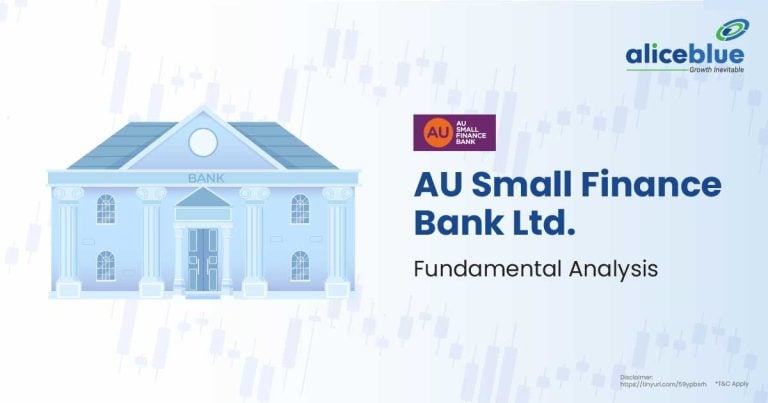
OFS, which stands for “Offer for Sale,” is a way for existing shareholders, often called “promoters,” to sell a portion of their stake in a listed company to the public.
Suppose Mr. Sharma, a major shareholder in Zomato Ltd., decides to reduce his stake by 5%. Instead of selling these shares in the open market, he opts for OFS, allowing retail and institutional investors to purchase these shares at a predetermined price, ensuring a more organized and transparent sale.
An Initial Public Offering (IPO) is when a private company offers its shares to the public for the first time, usually to raise capital for expansion or other business activities.
Let’s understand this with an example from Mama Earth. Initially, the founders of Mama Earth owned 100% of the shares. They’re the sole bosses. But they want to grow the business and need extra cash for that. So, they decided to sell some of their shares to the public through an IPO. After the IPO, they still own many shares, but not all. Let’s say they now own 70% of the shares, and the public owns the other 30%.
When MamaEarth goes public, ownership gets diluted. It’s not just the founders’ share anymore; it’s shared with whoever buys the shares. So, the founders’ ownership percentage decreases, but ideally, the company’s value increases because of the capital influx.
The main difference between an IPO and an OFS is that an IPO deals with new shares or the company’s first appearance on the stock market, while an OFS is when the promoters sell existing shares.
| Basis of Differences | IPO | OFS |
| Nature | In an IPO, fresh shares are introduced, allowing new investors to participate in ownership. | In OFS, existing shares are sold by major shareholders, making it a resale rather than an issuance. |
| Purpose | IPO aims to raise capital for growth, expansion, or debt repayment for the company. | OFS allows existing shareholders to offload their stake, thereby monetizing their investment. |
| Pricing | IPO pricing is determined through a book-building process, taking bids from various investors. | OFS is usually priced at a discount to the current market price to attract buyers more quickly. |
| Share Dilution | In an IPO, new shares alter existing ownership percentages, leading to dilution. | OFS involves selling existing shares; thus, there is no dilution of ownership. |
| Regulatory Process | IPO requires rigorous scrutiny by SEBI and involves several legal and financial disclosures. | OFS follows a simplified process compared to IPO, with less regulatory oversight. |
| Investor Accessibility | IPO is open to all types of investors, allowing more extensive participation. | OFS is often restricted to specific groups, such as institutional investors. |
| Impact on Company’s Financial Structure | IPO can transform the company’s structure, changing the debt-to-equity ratio with new equity. | OFS has no direct impact on the company’s financial structure; it’s merely a transfer of ownership. |
| Time Frame | IPOs often take longer to prepare and execute, given the detailed requirements. | OFS can be completed relatively quickly, as it is more streamlined and requires fewer formalities. |
| Effect on Market Liquidity | IPOs may enhance market liquidity by introducing fresh shares to the public market. | OFS may or may not have a significant impact on market liquidity, depending on the size of the sale. |
We hope that you are clear about the topic. But there is more to learn and explore when it comes to the stock market, commodity and hence we bring you the important topics and areas that you should know:
The key difference between OFS and IPO is that OFS involves selling already listed shares by major shareholders, while IPO introduces new company shares to the market.
The primary difference between FPO and OFS is that FPO (Follow-on Public Offer) is a fresh issue of shares or bonds to the public by an already listed company, whereas OFS involves selling already listed shares by existing shareholders.
OFS is used by existing shareholders, usually promoters, to offload a portion of their stake in a listed company.
As of August 2023, India’s largest FPO is Adani Enterprises’ Rs 20,000 crore follow-on public offer (FPO). This dwarfs the previous record set by Yes Bank’s Rs 15,000-crore FPO in July 2020.
No, buying an IPO isn’t always profitable. Success depends on company fundamentals, market conditions, and pricing.
In 2022, the average return on an IPO is 50%. This means that investors who bought shares in initial public offerings (IPOs) in 2022 have made an average of 50% of their money. But it is important to remember that this is just an average, and there are many different ways to make money. Some IPOs did really well, while others did not do as well.
To understand the topic and get more information, please read the related stock market articles below.

Vinayak is a passionate financial markets enthusiast with 4+ years of experience. He has curated over 100 articles simplifying complex financial concepts. He has a unique ability to break down financial jargon into digestible chunks. Vinayak aims to empower newbies with relatable, easy-to-understand content. His ultimate goal is to provide content that resonates with their needs and aspirations.
All Topics Related Posts
The table below shows the best ship building stocks in India based on the highest market capitalization. Name Market Cap (Cr) Close Price Mazagon Dock
September 3, 2024
The table below shows the best three wheeler stocks in India based on the highest market capitalization. Name Market Cap (Cr) Close Price Mahindra and
September 2, 2024
AU Small Finance Bank Ltd’s fundamental analysis highlights key financial metrics including market capitalization of ₹46,974.68 crore, PE ratio of 30.61, and return on equity
September 2, 2024 Must Read Articles Latest Articles Bank Details How to Videos© 2023, Alice Blue Financial Services (P) Ltd, All rights reserved.
Connect with us
Apps & Products Tools & Calculators Important Links"Prevent unauthorized transactions in your account update your mobile number/ email Id with your Stock Broker. Receive information of your transactions directly from Exchange on your mobile / email id at the end of the day."
Stock Brokers can accept securities as margin from clients only by way of pledge in the depository system w.e.f. September 1, 2020. Update your mobile number & email Id with your stock broker/depository participant and receive OTP directly from the depository on your email id and/or mobile number to create a pledge. Pay 20% upfront margin of the transaction early to trade in the cash market segment. Investors may please refer to the Exchange’s Frequently Asked Questions (FAQs) issued vide circular reference NSE/INSP/45191 dated July 31, 2020, and NSE/INSP/45534 dated August 31, 2020, and other guidelines issued from time to time in this regard. Check your Securities /MF/ Bonds in the consolidated account statement issued by NSDL/CDSL every month.
Corporate Office: No. 153/2, 3rd Floor, M.R.B.Arcade, Bagalur Main Road, Dwaraka Nagar, Yelahanka, Bengaluru – 560 063, Karnataka.
Registered Office: Old No.56/2 ,New No.58, LIC Nagar, Vinayagar Kovil Street, Erode -8,Tamil Nadu– 638002.
Alice Blue Financial Services (P) Ltd : NSE EQ | NSE FO | NSE CDS-90112 SEBI REG : INZ000156038
Alice Blue Financial Services (P) Ltd : BSE EQ | BSE FO | BSE CD-6670 SEBI REG : INZ000156038
Alice Blue Financial Services (P) Ltd : CDSL DP ID 12085300 DP SEBI REG : IN-DP-364-2018
Alice Blue Financial Services (P) Ltd : MCX-56710 SEBI REG : INZ000156038
We hereby declare that we are doing PRO trading
Procedure to file a complaint on SEBI SCORES : Register on SCORES portal and SEBI SCORES 2.0. Mandatory details for filing complaints on SCORES: Name, PAN, Address, Mobile Number, E-mail ID. Benefits: Effective Communication, Speedy redressal of the grievances
Click on the provided link to learn about the process for submitting a complaint on the ODR platform for resolving investor grievances.
Investment in securities markets are subject to market risks, read all the related documents carefully before investing. Brokerage will not exceed SEBI prescribed limit.
For queries regarding account opening or activation, email to [email protected] and for fund updates, email to [email protected]
Disclaimer : Prevent unauthorized transactions in your account. Update your mobile numbers/email IDs with your stock brokers. Receive information of your transactions directly from Exchange on your mobile/email at the end of the day. Issued in the interest of investors. All clients have to update their email id and mobile number with Member : Investor Grievance [email protected]
KYC is a one time exercise while dealing in securities markets – once KYC is done through a SEBI registered intermediary (broker, DP, Mutual Fund etc.), you need not undergo the same process again when you approach another intermediary.
No need to issue cheques by investors while subscribing to an IPO. Just write the bank account number and sign in the application form to authorise your bank to make payment in case of allotment. No worries for refund as the money remains in the investor’s account.
Investors are requested to note that Alice Blue Financial Services Private Limited is permitted to receive money from investor through designated bank accounts only named as Up streaming Client Nodal Bank Account (USCNBA). Alice Blue Financial Services Private Limited is also required to disclose these USCNB accounts to Stock Exchange. Hence, you are requested to use following USCNB accounts only for the purpose of dealings in your trading account with us. The details of these USCNB accounts are also displayed by Stock Exchanges on their website under “Know/ Locate your Stock Broker. Bank Details.